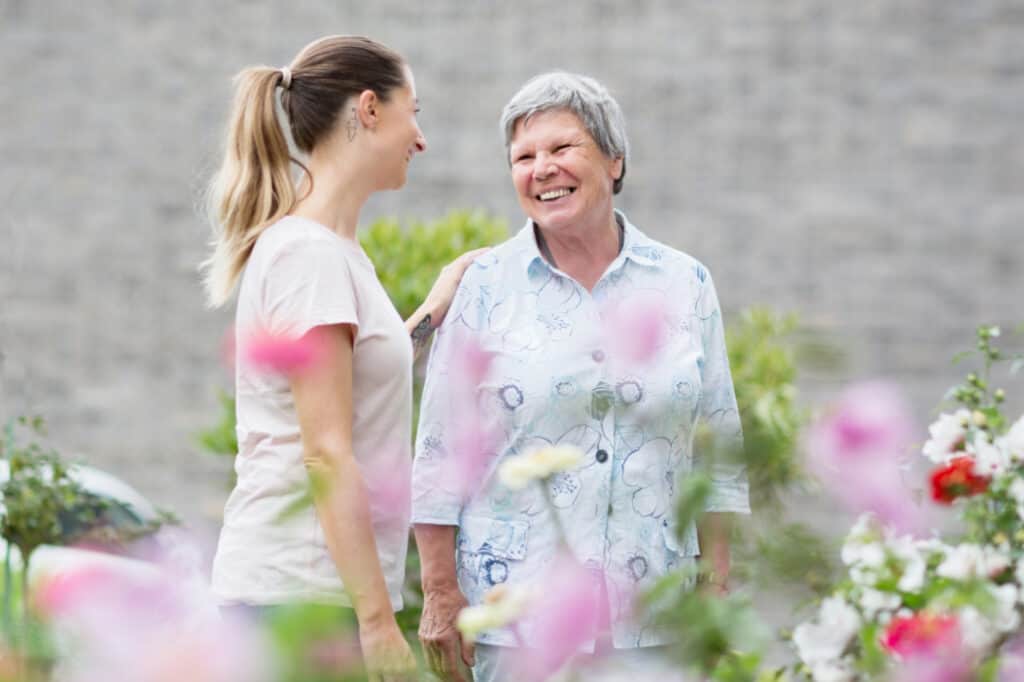If you have an elderly family member or loved one in your life, planning for their care is crucial to their future health and well-being. According to recent data, approximately 70 percent of seniors in the United States will need some form of long-term care. As a trusted family member, it’s important to know as much about senior living and elder care as possible to help you make a well-informed decision. Read on to learn more about the crucial things you should know about assisted living and elder caregiving.
Make Plans Early
As you ponder future plans for senior living, it’s important to make sure that your loved one is part of the conversation. Start discussing options early and prepare them for the possibility of entering a senior living community or having some form of in-home care. Introduce the idea gradually over time, so it gives your loved one the chance to prepare and adjust. If possible, start slowly by having an aide come to the home for just a few hours per week. Taking things slowly will help elderly people get used to the new changes more easily.
If you’re planning to have your elderly family member live in a senior living community, make sure they’re part of the selection process. Schedule several visits and let them make a list of questions that are important to them. The sooner you make plans and start the conversation, the easier it’ll be for everyone to adapt to this new lifestyle.
Learn About Different Types of Elder Care
The term “elder care” doesn’t just involve living in a nursing home or assisted living facility. There are many types of elder care services that you can look into, depending on your loved one’s unique needs. Here are some examples of options to choose from.
Assisted Living
An assisted living community or facility provides residents with 24-hour supervision. They also receive meals, social activities, and a variety of other amenities. The staff-to-resident ratio tends to be fairly high in an assisted living facility. This type of elder care tends to cost less than a memory care facility, which is much more specialized.
Memory Care
A memory care community also has 24-hour supervision, but residents get more specialized attention from caregivers. These facilities are designed for people with health issues like dementia linked to Alzheimer’s Disease, Parkinson’s, and Huntington’s. They also care for those with other forms of dementia. Residents receive a high level of care that includes recreational activities to help improve brain function. There is also more security to prevent external access and to prevent residents from leaving the facility unattended.
Home Elder Care
Home care for elderly people typically includes assisting them with daily tasks and errands. These skilled caregivers will come to the resident’s home on a set schedule. Elder home care may involve taking the resident to doctor appointments, bathing them, or doing chores like laundry and cooking. This type of elder care is also referred to as personal or attendant care.
Home Health Care
Home health care provides a higher level of care that requires caregivers to have specific medical training. Some services may include checking the person’s vitals, assisting with operating medical equipment, and more. A home health care provider can also provide the same care as listed for home care. However, they also deal with specific medical issues, too. These trained professionals visit the home on a set schedule to keep your loved one safe and healthy at home for as long as possible.
Timing is Important
While you certainly don’t want to force a loved one into a senior living, memory care, or assisted living facility, timing is crucial. This is true in particular for seniors who clearly need some help doing daily tasks or with medical issues. Get to know the signs that a senior loved one may need some extra help. This can include things like trouble with walking, changes in eating and sleeping habits, and difficulties doing everyday tasks.
If an elderly loved one has trouble concentrating or they are starting to exhibit poor decision-making skills, it could be time to get some help. Memory loss, mobility loss, and even loss of interest in socializing or hobbies are also signs that they could need extra care. In many cases, it’s worse if you wait too long to get an elderly person the help they need. Pay close attention to these warning signs so you can determine the right time to make a change.
What to Know About Senior Living
Many seniors today prefer to age in place, which means that they get to stay in their homes for as long as possible. But knowing the benefits of senior living can encourage them to give it a try. Explore the different types of elder care services available, and agree on an option that works best for everyone. Whether it’s hiring in-home care, taking them to a caregiver a few times a week, or moving into a facility, emphasize that each of these options is made for helping them.
Take a few tours of different assisted living communities in your area. Write down a list of questions and don’t be afraid to get the answers you need. The more research you do ahead of time, the more confident you’ll feel when it’s time to make a decision. Remember that these types of elder care are designed to provide seniors with the right level of care to keep them healthy and safe.
Protect Your Loved One
Senior living isn’t always one-size-fits-all. But knowing the basics of elder care will ensure that your family member finds the right option for their needs. At Inspired Living, our kind, skilled caregivers help to support a full life filled with activities, so learn more by reaching out to us today.




